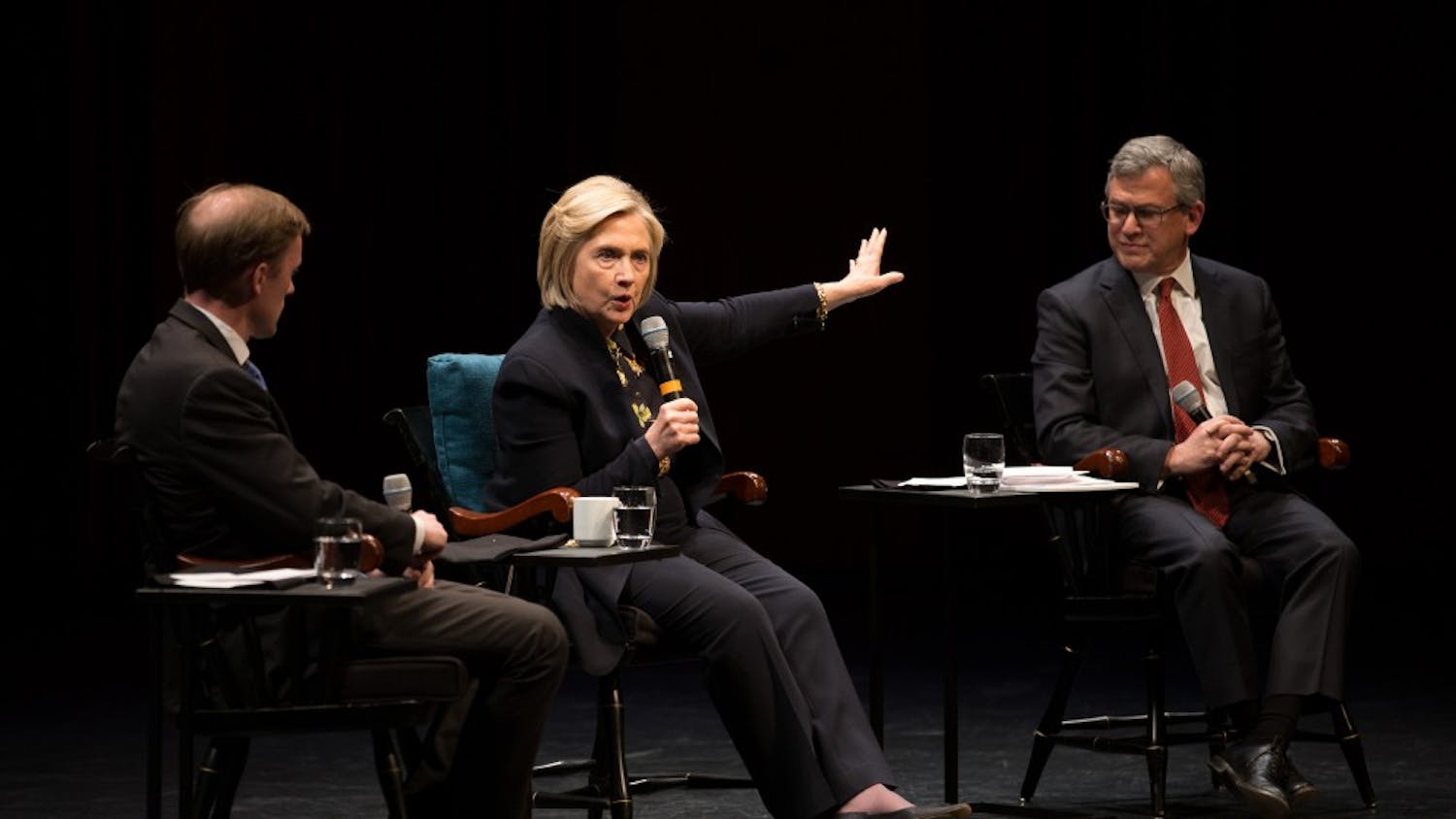With more than 400 days until Election Day, an overlong list of Democratic candidates shows no signs of shrinking. The slate of candidates is polling at numbers as varied as their experience, policies, backgrounds and tones. At the forefront of the minds of presidential candidates and Democratic voters alike is how to beat President Trump in the 2020 election.
The 2016 election proved that elections do not adhere to long-standing tenets. Extensive careers in public service and robust policy proposals have waned in importance, and in their wake have risen identity and rhetoric. Democrats must weigh their priorities. If voters want any Democrat, rather than any specific candidate, to beat Trump, they must throw out policy and focus on electability. This electability hinges on three qualities: energy, experience and image.
While success in a primary means gaining the support of Democrats, winning a general election requires appealing to people who are hesitant to lend their support. As a conservative, I see that it requires convincing people from the other side to abandon ship. Kamala Harris is the candidate to do this,
In the 2016 election, Donald Trump’s campaign exhibited a remarkable energy: zig-zagging across the country, inspiring many voters with a message of urgency, and dominating news coverage. According to a study by The Harvard Kennedy School’s Shorenstein Center, Trump received around 15 percent more coverage than Hillary Clinton throughout the campaign. Today, this feat requires a candidate who can capture and sustain the attention of the electorate. Of course, any candidate for the presidency has great passion for their vision for the country. However, that passion does not always translate to an outward vigor that can invigorate and inspire voters. While Clinton had a significant record of qualifications, her level-headed demeanor was drowned out by Trump. In the 2020 election, a Democratic candidate will need a fervency to wrestle Trump for the microphone. While some candidates can generate emotion to match Donald Trump — namely, Elizabeth Warren, Bernie Sanders and Kamala Harris; some, like Joe Biden and Amy Klobuchar, fall short.
This is no ordinary time in politics. A previous career in government is no longer essential to win the presidency. In fact, it was precisely Clinton’s entanglements in Washington that made her stink of corruption to so many voters. Clinton’s ideological development struck many voters as inauthentic and dated — in a Morning Consult survey, 84 percent of respondents agreed that “she changes her positions when it’s politically convenient.” Voters support campaigns that feel timely. John McConnell, speechwriter for President George W. Bush, coined the 14-Year Rule, a theory that candidates whose first election to public office occurred more than 14 years prior to the presidential election face a significant disadvantage. In other words, a candidate’s message loses urgency after more than fourteen years in public office.
Thus, Joe Biden, who has been in D.C. for decades, has significant name recognition, but has been beating his same drum for years. Voters in the general election want to put their support behind candidates whose campaigns are tailored for now. Warren is clearly smart, articulate and impassioned. But her career in politics, similar to Sanders, has permanently tied her image to a far-left end of the Democratic Party that will repel independent voters and fail to win over reluctant Trump supporters. Pete Buttigieg, Beto O’Rourke and Andrew Yang are promising fresh faces but lack sufficient vigor to match Warren, Biden or Sanders, much less Trump.
Lastly, and arguably most importantly, is image. Since the 2016 election, the Democratic Party has championed the cause of combating underrepresentation in politics. Democrats elected unprecedented numbers of women and minorities to public office in the 2018 midterm elections. This has constructed a stronger base of support from minority groups across the country and has set a course for the future, working to ensure a more diverse and representative Congress. For the Democratic nominee to be a person who looks like most politicians today — namely, male and white — would defy the past four years of rhetoric and action. The Democratic candidate must echo this message of representation both in terms of rhetoric and image, and many do. Harris, Warren, Julian Castro and Cory Booker have effectively used their respective images to inspire voters who have not typically felt adequately represented on the debate state. For example, Harris brought up a personal anecdote about bussing during the debate to appeal to black and minority voters.
Simply put, if Democrats want the best shot of recapturing the White House, they should nominate Kamala Harris. She is both fresh and politically tested. She has a rhetoric that can galvanize Democratic voters and win over independents. Her image is far enough from the left to capture moderate Republicans while still exciting the far-left.
Whether desired or not, Donald Trump has changed the formula for winning a presidential election. No longer does policy plus experience plus poise equal victory. The Democrats must not nominate a candidate who could win a typical presidential election. If they are to be successful in putting a Democrat in the White House, the Democrats must nominate a candidate who can beat Donald Trump specifically. And Kamala Harris is the woman for the job.



